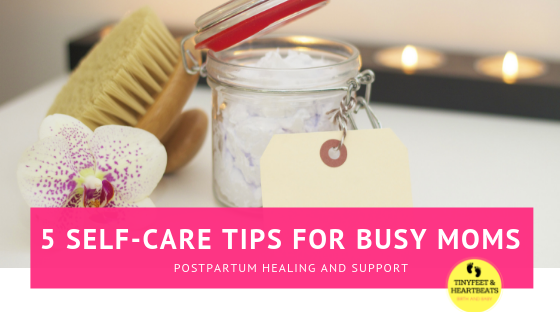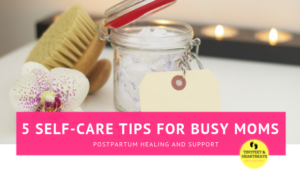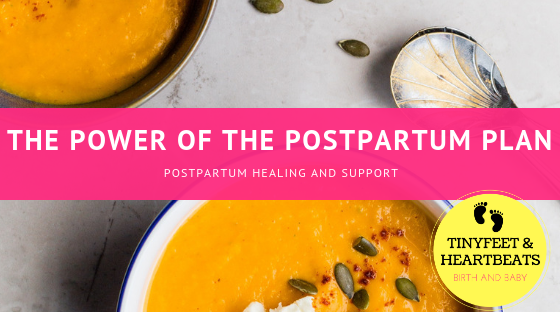Breastfeeding is a critical aspect of the first few months of your baby’s life. In fact, it’s so important that the American Academy of Pediatrics recommends breastfeeding exclusively for the first six months and then continuing to breastfeed as long as mom and baby mutually agree. Even though breastfeeding might seem like a natural process, there are plenty of things you can do to ensure that your baby gets all the nutrients he or she needs from breast milk. Here’s what you need to know about breastfeeding your newborn:

Breastfeeding is not always easy, but it can be.
Breastfeeding your baby can be challenging and can be difficult, but it is worth it. If you are struggling to breastfeed your baby, there are several things you can do to get help.
- Talk with other mothers about their experiences breastfeeding their babies and how they overcame the challenges of breastfeeding.
- Ask for help from a lactation consultant or another expert who can teach you how to breastfeed successfully.
- Contact local hospitals, maternity clinics and birthing centers in your area for assistance in finding a lactation consultant who will work with you one-on-one at a private location (such as your home) if needed.
What you eat and drink can affect your breastmilk.
You may be surprised to learn that breastfeeding is a process of digestion, just like eating and drinking. But it’s true! Just like the food and drink you consume, what you eat and drink can affect your breastmilk.
Breastmilk is made from the nutrients in your blood, so when you eat certain foods or drinks they will affect how many nutrients are available for your baby to use. For example:
- If you eat a lot of meat, eggs or other high-protein foods then your body has more protein than it needs right now – so some of that protein will go into making breastmilk instead of staying in your body where it would help keep you healthy. That means less protein for you (and potentially weaker hair) but more than enough for your baby!
- When we eat too much fat our bodies make less fat for our babies because there’s plenty already around – this means that if you eats lots of junk food or fast food you won’t be getting all the vitamins you need either!
“Breast is best” is a myth that can cause a lot of harm to moms who want to breastfeed but aren’t able to.
You may have heard that breast is always best for your baby, but this isn’t always the case. It’s important to remember that breastfeeding isn’t always possible for every mother and child, and not everyone chooses to breastfeed. If you want to try breast milk but aren’t able to get it from your own body, there are several options available like local milk banks.
If you do choose to breastfeed, here are some tips on how:
- Find support from other breastfeeding mothers in your area or online (there are also apps for this).
- Make sure that you’re well-nourished before trying anything new with your diet—you’ll need all the energy you can get!
- Don’t let anyone make you feel bad about taking breaks when needed; sometimes moms need time away from their babies so they can recharge their batteries too!
If your baby isn’t gaining enough weight, you need support, not blame.
It’s natural to feel sad, frustrated, and angry when you’re not able to breastfeed your child. But remember that breastfeeding is not always easy. It doesn’t always go exactly as planned, and it can be tough work for both mum and baby.
If you find yourself in this situation, please don’t blame yourself or your partner or anyone else around you – instead seek support from others who know what they’re talking about. The most important thing is to look after yourself!
Breastfeeding moms often don’t know how much milk they’re producing, but doctors usually tell them that it’s “not enough” if their baby isn’t gaining weight. I’ve seen many women feel like failures in themselves when they hear these messages from health professionals. Support groups can help you learn how to express milk by hand and find ways of increasing production with things like breastfeeding positions that work better for you.
Your baby’s tongue might be tied.
While infants can’t tell you how they feel, there are some signs that your baby might be suffering from tongue tie. If your baby has trouble latching on to the breast or feeding for long periods of time, it could be a sign of tongue tie.
In addition to having difficulty breastfeeding, another sign that your infant may have a tongue-tie is fussiness during feedings. Babies with a severe case of tongue tie often cry at meals because their jaws hurt from trying to suckle on their mothers’ breasts. A more subtle symptom is noticing that your infant tends to arch their back when nursing; this is thought to occur due to pain in the jaw muscles and upper back region when they try using their tongues while breastfeeding.
If you suspect that your baby has a tongue tie, see a doctor or pediatric dentist. Treatment is usually as simple as cutting a small piece of tissue under the tongue to release tension and make breastfeeding easier for both you and your infant. If your baby was born with a severe case of tongue tie, they may have trouble feeding for several weeks before it resolves itself. Babies who cannot breastfeed due to their condition are often given supplemental formula to help them gain weight and develop properly.
It’s normal for it to take time for breastfeeding to get going. It can take weeks or months depending on a variety of factors.
It’s normal for it to take time for breastfeeding to get going. It can take weeks or months depending on a variety of factors.
Your baby may be too sleepy at first, or they may not latch on properly. Some babies are fussy while they’re learning how to breastfeed correctly and might need lots of encouragement from you. If your baby seems uninterested in latching on, try rubbing their back gently, or holding them skin-to-skin (with your shirt pulled up) with their head nestled into your chest—this usually stimulates the let-down reflex (when milk flows into the breast), which can make them want to nurse more eagerly.
If it’s hard for you both at first, don’t give up! The longer you keep trying and practicing different positions and techniques with your little one as well as talking with other moms who have made breastfeeding work for them will help build confidence in yourself and increase bonding between parent and child–and that’s something worth waiting for!
Breastfeeding is often portrayed as a magical or natural ability, but the truth is that most women need some help with it, especially in the early days.
Many women think that breastfeeding is a natural ability and that you either have it or you don’t. This can make it seem like a big deal when your baby doesn’t latch on right away. But the truth is that most women need some help with it, especially in the early days.
It can take weeks or months to get breastfeeding right, and even then there may be challenges: sore nipples, painful gas pains from improper positioning, and difficulty maintaining supply after returning to work or school… The list goes on! If you have questions about how to make breastfeeding easier for yourself and your baby—or if things aren’t going as well as they could be—you might want to seek out some outside assistance from experts like lactation consultants or peer counselors at local hospitals or community health centers.
Breastfeeding is hard work, but with good support, there is no reason why most women can’t do it successfully
Breastfeeding is a skill that takes time to learn. If you are struggling with breastfeeding, don’t be afraid to ask for help! A lactation consultant can help you figure out how to make breastfeeding work for you and your baby. You can also get support from a breastfeeding support group or from women who have been there before you. These groups are made up of volunteers who want to help other mothers learn how to breastfeed successfully, so please take advantage of their wisdom!
It’s important to remember that breastfeeding is hard work, but with good support, there is no reason why most women can’t do it successfully. If at any point you feel stuck or confused about how to get started or continue breastfeeding your baby, don’t be afraid to reach out for help! You can always call your local La Leche League chapter or contact an International Board Certified Lactation Consultant (IBCLC) through the United States Lactation Consultants Association website.



 The busier moms find themselves taking care of themselves less and less as they get busier taking care of their families. We’re here to help; we’ll provide you with simple tips to get in your much-needed self-care to get you back to feeling your best. It’s natural to put your kids first, but you can’t neglect yourself completely; you’re important too.
The busier moms find themselves taking care of themselves less and less as they get busier taking care of their families. We’re here to help; we’ll provide you with simple tips to get in your much-needed self-care to get you back to feeling your best. It’s natural to put your kids first, but you can’t neglect yourself completely; you’re important too.
 Expectant Mothers spend a great deal of time creating their birth plans. They take time to think through how they want to enter the birthing space, who they invite into that space and how the decisions they make affect them and the baby. They type these plans out and moms give them to their birthing partners so everyone is on the same page about their wishes. This plan is all about mom and how everyone on her team can support in having a happy and healthy delivery. But what about the postpartum period?
Expectant Mothers spend a great deal of time creating their birth plans. They take time to think through how they want to enter the birthing space, who they invite into that space and how the decisions they make affect them and the baby. They type these plans out and moms give them to their birthing partners so everyone is on the same page about their wishes. This plan is all about mom and how everyone on her team can support in having a happy and healthy delivery. But what about the postpartum period?